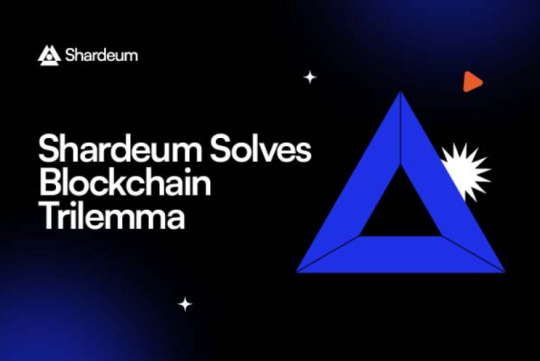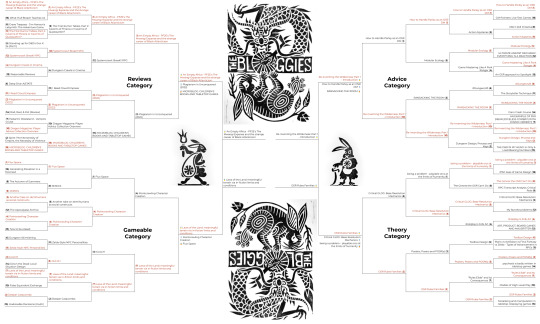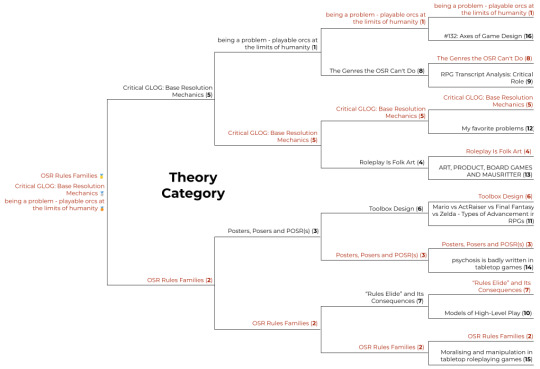#trilemma
Link
2 notes
·
View notes
Text
So here's the thing about vacation
There's this side of me that goes
Ah yes, finally, vacation, I can knock everything off my to-do list that I have been putting off or haven't been getting to during regular work weeks and I can start again with a clean slate wouldn't that be great?
Then there's another side of me that's more like
Eyyy finally we got vacation so I can watch that movie or that series that I couldn't afford to watch in my free time, or play that game, finish a fun puzzle, play some guitar, catch up on reading!
But then there's also a third side that goes
WHO CARES IT'S VACATION I CAN DO WHATEVER THE HECK I WANT and I'll just do whatever I feel like in the moment, whether that be productive, fun, both, or neither.
These three sides of me have been in constant battle for the past few days and I'm terrified of work starting again next week.
#productivity#fun#relaxing#vacation#trilemma#is there a right choice?#how do I balance?#how do I life?#just like#in general#I should sleep#it's 2AM#I'm sure my sleep schedule isn't helping here
0 notes
Text
Stepbro Ramming his Horny Blonde sister brother and sister having sex
American naked massage
Jane Wilde manipulated the couple Derrick Pierce and Dee Williams to hard threesome fucking
Legal age teenager slim honey spreads legs and stimulates juicy pussy
Steamy big cock doggy action for luscious teen hottie
White teen dp and fun russian anal Home Away From Home Away From Home
Lesbea Horny blonde Cristal Caitlin 69 fun with big tits Tindra Frost
Family Sex Games From Israeli Movie
Hentai doctor gets fucked by many tentacles
Paja ecuador
#Sabino#drive-#Notkerian#sunfoil#McNamara#all-red#trilemma#auntish#unfactorable#orthometric#husbanded#gaea#ferritungstite#Pro-syrian#vaccination#unrespited#Tonie#Chretien#overdevoutness#Hong-Kong
0 notes
Text
Solving the Moderator's Trilemma with Federation

The classic trilemma goes: “Fast, cheap or good, pick any two.” The Moderator’s Trilemma goes, “Large, diverse userbase; centralized platforms; don’t anger users — pick any two.” The Moderator’s Trilemma is introduced in “Moderating the Fediverse: Content Moderation on Distributed Social Media,” a superb paper from Alan Rozenshtein of U of Minnesota Law, forthcoming in the journal Free Speech Law, available as a prepub on SSRN:
https://papers.ssrn.com/sol3/papers.cfm?abstract_id=4213674#maincontent
If you’d like an essay-formatted version of this post to read or share, here’s a link to it on pluralistic.net, my surveillance-free, ad-free, tracker-free blog:
https://pluralistic.net/2023/03/04/pick-all-three/#agonism
Rozenshtein proposes a solution (of sorts) to the Moderator’s Trilemma: federation. De-siloing social media, breaking it out of centralized walled gardens and recomposing it as a bunch of small servers run by a diversity of operators with a diversity of content moderation approaches. The Fediverse, in other words.
In Albert Hirschman’s classic treatise Exit, Voice, and Loyalty, stakeholders in an institution who are dissatisfied with its direction have two choices: voice (arguing for changes) or exit (going elsewhere). Rozenshtein argues that Fediverse users (especially users of Mastodon, the most popular part of the Fediverse) have more voice and more “freedom of exit”:
https://en.wikipedia.org/wiki/Exit,_Voice,_and_Loyalty
Large platforms — think Twitter, Facebook, etc — are very unresponsive to users. Most famously, Facebook polled its users on whether they wanted to be spied on. Faced with overwhelming opposition to commercial surveillance, Facebook ignored the poll result and cranked the surveillance dial up to a million:
https://www.nbcnews.com/tech/tech-news/facebook-ignores-minimal-user-vote-adopts-new-privacy-policy-flna1c7559683
A decade later, Musk performed the same stunt, asking users whether they wanted him to fuck all the way off from the company, then ignored the vox populi, which, in this instance, was not vox Dei:
https://apnews.com/article/elon-musk-twitter-inc-technology-business-8dac8ae023444ef9c37ca1d8fe1c14df
Facebook, Twitter and other walled gardens are designed to be sticky-traps, relying on high switching costs to keep users locked within their garden walls which are really prison walls. Internal memos from the companies reveal that this strategy is deliberate, designed to keep users from defecting even as the service degrades:
https://www.eff.org/deeplinks/2021/08/facebooks-secret-war-switching-costs
By contrast, the Fediverse is designed for ease of exit. With one click, users can export the list of the accounts they follow, block and mute, as well as the accounts that follow them. With one more click, users can import that data into any other Fediverse server and be back up and running with almost no cost or hassle:
https://pluralistic.net/2022/12/23/semipermeable-membranes/
Last month, “Nathan,” the volunteer operator of mastodon.lol, announced that he was pulling the plug on the server because he was sick of his users’ arguments about the new Harry Potter game. Many commentators pointed to this as a mark against federated social media, “You can’t rely on random, thin-skinned volunteer sysops for your online social life!”
https://mastodon.lol/@nathan/109836633022272265
But the mastodon.lol saga demonstrates the strength of federated social media, not its weakness. After all, 450 million Twitter users are also at the mercy of a thin-skinned sysop — but when he enshittifies his platform, they can’t just export their data and re-establish their social lives elsewhere in two clicks:
Mastodon.lol shows us how, if you don’t like your host’s content moderation policies, you can exercise voice — even to the extent of making him so upset that he shuts off his server — and where voice fails, exit steps in to fill the gap, providing a soft landing for users who find the moderation policies untenable:
https://doctorow.medium.com/twiddler-1b5c9690cce6
Traditionally, centralization has been posed as beneficial to content moderation. As Rozenshtein writes, a company that can “enclose” its users and lock them in has an incentive to invest in better user experience, while companies whose users can easily migrate to rivals are less invested in those users.
And centralized platforms are more nimble. The operators of centralized systems can add hundreds of knobs and sliders to their back end and twiddle them at will. They act unilaterally, without having to convince other members of a federation to back their changes.
Centralized platforms claim that their most powerful benefit to users is extensive content moderation. As Tarleton Gillespie writes, “Moderation is central to what platforms do, not peripheral… [it] is, in many ways, the commodity that platforms offer”:
https://yalebooks.yale.edu/book/9780300261431/custodians-of-the-internet/
Centralized systems claim that their enclosure keeps users safe — from bad code and bad people. Though Rozenshtein doesn’t say so, it’s important to note that this claim is wildly oversold. Platforms routinely fail at preventing abuse:
https://www.nbcnews.com/nbc-out/out-news/sexual-assault-harassment-bullying-trans-students-say-targeted-school-rcna7803
And they also fail at blocking malicious code:
https://www.scmagazine.com/news/threats/apple-bugs-ios-macos_new_class
But even where platforms do act to “keep users safe,” they fail, thanks to the Moderator’s Trilemma. Setting speech standards for millions or even billions of users is an impossible task. Some users will always feel like speech is being underblocked — while others will feel it’s overblocked (and both will be right!):
https://www.eff.org/deeplinks/2021/07/right-or-left-you-should-be-worried-about-big-tech-censorship
And platforms play very fast and loose with their definition of “malicious code” — as when Apple blocked OG App, an Instagram ad-blocker that gave you a simple feed consisting of just the posts from the people you followed:
https://pluralistic.net/2023/02/05/battery-vampire/#drained
To resolve the Moderator’s Trilemma, we need to embrace subsidiarity: “decisions should be made at the lowest organizational level capable of making such decisions.”
https://pluralistic.net/2023/02/07/full-stack-luddites/#subsidiarity
For Rozenshtein, “content-moderation subsidiarity devolves decisions to the individual instances that make up the overall network.” The fact that users can leave a server and set up somewhere else means that when a user gets pissed off enough about a moderation policy, they don’t have to choose between leaving social media or tolerating the policy — they can simply choose another server that’s part of the same federation.
Rozenshtein asks whether Reddit is an example of this, because moderators of individual subreddits are given broad latitude to set their own policies and anyone can fork a subreddit into a competing community with different moderation norms. But Reddit’s devolution is a matter of policy, not architecture — subreddits exist at the sufferance of Reddit’s owners (and Reddit is poised to go public, meaning those owners will include activist investors and large institutions that might not care about your little community). You might be happy about Reddit banning /r_TheDonald, but if they can ban that subreddit, they can ban any subreddit. Policy works well, but fails badly.
By moving subsidiarity into technical architecture, rather than human policy, the fediverse can move from antagonism (the “zero-sum destructiveness” that dominates current online debate) to agonism, where your opponent isn’t an enemy — they are a “political adversary”:
https://www.yalelawjournal.org/article/the-administrative-agon
Here, Rozenshtein cites Aymeric Mansoux and Roel Roscam Abbing’s “Seven Theses On The Fediverse And The Becoming Of Floss”:
https://test.roelof.info/seven-theses.html
For this to happen, different ideologies must be allowed to materialize via different channels and platforms. An important prerequisite is that the goal of political consensus must be abandoned and replaced with conflictual consensus…
So your chosen Mastodon server “may have rules that are far more restrictive than those of the major social media platforms.” But the whole Fediverse “is substantially more speech protective than are any of the major social media platforms, since no user or content can be permanently banned from the network and anyone is free to start an instance that communicates both with the major Mastodon instances and the peripheral, shunned instances.”
A good case-study here is Gab, a Fediverse server by and for far-right cranks, conspiratorialists and white nationalists. Most Fediverse servers have defederated (that is, blocked) Gab, but Gab is still there, and Gab has actually defederated from many of the remaining servers, leaving its users to speak freely — but only to people who want to hear what they have to say.
This is true meaning of “freedom of speech isn’t freedom of reach.” Willing listeners aren’t blocked from willing speakers — but you don’t have the right to be heard by people who don’t want to talk to you:
https://pluralistic.net/2022/12/10/e2e/#the-censors-pen
Fediverse servers are (thus far) nonprofits or hobbyist sites, and don’t have the same incentives to drive “engagement” to maximize the opportunties to show advertisements. Fediverse applications are frequently designed to be antiviral — that is, to prevent spectacular spreads of information across the system.
It’s possible — likely, even — that future Fediverse servers will be operated by commercial operators seeking to maximize attention in order to maximize revenue — but the users of these servers will still have the freedom of exit that they enjoy on today’s Jeffersonian volunteer-run servers — and so commercial servers will have to either curb their worst impulses or lose their users to better systems.
I’ll note here that this is a progressive story of the benefits of competition — not the capitalist’s fetishization of competition for its own sake, but rather, competition as a means of disciplining capital. It can be readily complemented by discipline through regulation — for example, extending today’s burgeoning crop of data-protection laws to require servers to furnish users with exports of their follow/follower data so they can go elsewhere.
There’s another dimension to decentralized content moderation that exit and voice don’t address — moderating “harmful” content. Some kinds of harm can be mitigated through exit — if a server tolerates hate speech or harassment, you can go elsewhere, preferably somewhere that blocks your previous server.
But there are other kinds of speech that must not exist — either because they are illegal or because they enact harms that can’t be mitigated by going elsewhere (or both). The most spectacular version of this is Child Sex Abuse Material (CSAM), a modern term-of-art to replace the more familiar “child porn.”
Rozenshtein says there are “reasons for optimism” when it comes to the Fediverse’s ability to police this content, though as he unpacked this idea, I found it much weaker than his other material. Rozenshtein proposes that Fediverse hosts could avail themselves of PhotoDNA, Microsoft’s automated scanning tool, to block and purge themselves of CSAM, while noting that this is “hardly foolproof.”
If automated scanning fails, Rozenshtein allows that this could cause “greater consolidation” of Mastodon servers to create the economies of scale to pay for more active, human moderation, which he compares to the consolidation of email that arose as a result of the spam-wars. But the spam-wars have been catastrophic for email as a federated system and produced all kinds of opportunities for mischief by the big players:
https://doctorow.medium.com/dead-letters-73924aa19f9d
Rozenshtein: “There is a tradeoff between a vibrant and diverse communication system and the degree of centralized control that would be necessary to ensure 100% filtering of content. The question, as yet unknown, is how stark that tradeoff is.”
The situation is much simpler when it comes to servers hosted by moderators who are complicit in illegal conduct: “the Fediverse may live in the cloud, its servers, moderators, and users are physically located in nations whose governments are more than capable of enforcing local law.” That is, people who operate “rogue” servers dedicated to facilitating assassination, CSAM, or what-have-you will be arrested, and their servers will be seized.
Fair enough! But of course, this butts up against one of the Fediverse’s shortcomings: it isn’t particularly useful for promoting illegal speech that should be legal, like the communications of sex workers who were purged from the internet en masse following the passage of SESTA/FOSTA. When sex workers tried to establish a new home in the fediverse on a server called Switter, it was effectively crushed.
This simply reinforces the idea that code is no substitute for law, and while code can interpret bad law as damage and route around it, it can only do so for a short while. The best use of speech-enabling code isn’t to avoid the unjust suppression of speech — it’s to organize resistance to that injustice, including, if necessary, the replacement of the governments that enacted it:
https://onezero.medium.com/rubber-hoses-fd685385dcd4
Rozenshtein briefly addresses the question of “filter bubbles,” and notes that there is compelling research that filter bubbles don’t really exist, or at least, aren’t as important to our political lives as once thought:
https://sciendo.com/article/10.2478/nor-2021-0002
Rozenshtein closes by addressing the role policy can play in encouraging the Fediverse. First, he proposes that governments could host their own servers and use them for official communications, as the EU Commission did following Musk’s Twitter takeover:
https://social.network.europa.eu
He endorses interoperability mandates which would required dominant platforms to connect to the fediverse (facilitating their users’ departure), like the ones in the EU’s DSA and DMA, and proposed in US legislation like the ACCESS Act:
https://www.eff.org/deeplinks/2022/04/eu-digital-markets-acts-interoperability-rule-addresses-important-need-raises
To get a sense of how that would work, check out “Interoperable Facebook,” a video and essay I put together with EFF to act as a kind of “design fiction,” in the form of a user manual for a federated, interoperable Facebook:
https://www.eff.org/interoperablefacebook
He points out that this kind of mandatory interop is a preferable alternative to the unconstitutional (and unworkable!) speech bans proposed by Florida and Texas, which limit the ability of platforms to moderate speech. Indeed, this is an either-or proposition — under the terms proposed by Florida and Texas, the Fediverse couldn’t operate.
This is likewise true of proposals to eliminate Section 230, the law that immunizes platforms from federal liability for most criminal speech acts committed by their users. While this law is incorrectly smeared as a gift to Big Tech, it is most needed by small services that can’t possibly afford to monitor everything their users say:
https://www.techdirt.com/2020/06/23/hello-youve-been-referred-here-because-youre-wrong-about-section-230-communications-decency-act/
One more recommendation from Rozenshtein: treat interop mandates as an alternative (or adjunct) to antitrust enforcement. Competition agencies could weigh interoperability with the Fediverse by big platforms to determine whether to enforce against them, and enforcement orders could include mandates to interoperate with the Fediverse. This is a much faster remedy than break-ups, which Rozenshtein is dubious of because they are “legally risky” and “controversial.”
To this, I’d add that even for people who would welcome break-ups (like me!) they are sloooow. The breakup of AT&T took 69 years. By contrast, interop remedies would give relief to users right now:
https://onezero.medium.com/jam-to-day-46b74d5b1da4
On Tue (Mar 7), I’m doing a remote talk for TU Wien.
On Mar 9, you can catch me in person in Austin at the UT School of Design and Creative Technologies, and remotely at U Manitoba’s Ethics of Emerging Tech Lecture.
On Mar 10, Rebecca Giblin and I kick off the SXSW reading series.
[Image ID: A trilemma Venn diagram, showing three ovoids in a triangular form, which intersect at their tips, but not in the middle. The ovoids are labeled 'Avoid angering users,' 'Diverse userbase,' 'Centralized platforms.' In the center of the ovoids is the Mastodon mascot. The background is composed of dead Twitter birds on their backs with exes for eyes.]
#pluralistic#cda#cda230#section 230#content moderation#federation#intermediary liability#mastodon#fediverse#protocols not platforms#activitypub#moderator's trilemma#agonism#subsidiary
93 notes
·
View notes
Text
POST SCRIPT - Second Practice Session: Stellarium of the Vinteralf with Old School Essentials
Sometimes you hit publish on a blog post about a game and realize you didn’t share your favorite parts. Here are a few from this weekend’s game that have been bouncing around in my head:
Trilemma Adventures is my favorite adventure format. An adventure on two open pages with more than enough details and more setting info available if you want it. It is the most bang for my gaming buck that I…

View On WordPress
#D & D#D&D#Dungeons and Dragons#Old School Essentials#OSE#Stellarium of the Vinteralf#Trilemma Adventures
2 notes
·
View notes
Video
youtube
Fallibilism / Philosophy
FALLIBILISM IS THE PHILOSOPHICAL CLAIM THAT NO BELIEF CAN HAVE JUSTIFICATION WHICH GUARANTEES THE TRUTH OF THE BELIEF, OR THAT NO BELIEFS ARE CERTAIN.
3 notes
·
View notes
Text
Tabi Airdrop: How To Get The $TABI Token For Free!
Introducing Tabi airdrop, Tabichain, and its associated token, $TABI, backed by Binance Labs and Animoca.
Tabichain is a modular Cosmos gaming Layer 1 project with universal virtual machine compatibility.
It’s a test net airdrop, and I will show you steps to participate.
Let’s get started.
How To Participate in the $TABI Airdrop
Here’s a quick guide:
Step 1 – Add Tabi Test Network
Visit…

View On WordPress
0 notes
Text

The blockchain trilemma refers to the challenge of achieving decentralization, security, and scalability in a blockchain network. Know more about the blockchain trilemma
0 notes
Text
youtube
"The problem of you on top of everything else. You above all. Cause that's what God is. Horus. Apollo. Jehovah. Kal-El. Clark Joseph Kent. See, what we call God depends upon our tribe, Clark Joe. Because God is tribal, God takes sides. No man in the sky intervened when I was a boy to deliver me from my daddy's fists and abominations. I figured out way back if God is all powerful, he cannot be all good. And if he is all good, then he cannot be all powerful. And neither can you be."-Lex Luthor.
#for reference#bvs#Jesse ate this monologue and became the best live action iteration of Lex Luthor in my books#“the fists and abominations” line and its implications#the epicurus trilemma
0 notes
Text
Why Because
Aloha kākou. I never really wondered about the meaning of life. I just believed we’re born, we live a life, and eventually pass away. During the process of life there are the things you learn. What we are taught to believe. These are the truths that we know from our life experiences. We ask questions, why, and we get an answer, and when the answer can’t be answered, then it’s “just because.” So,…

View On WordPress
1 note
·
View note
Video
youtube
What is The Blockchain Trilemma ?
#youtube#What is the blockchain trilemma#the blockchain trilemmma#bitcoin#crypto news#price predictions#ethereum 2.0#the ethereum merge
0 notes
Link
1 note
·
View note
Text
THE BLOGGIES 2023: FINALISTS

(If you just want to skip to the list of BLOGGIE finalists, scroll to the "Who Are The BLOGGIES?" section below.)
+++
WHAT ARE THE BLOGGIES?
Awards for some of the best tabletop roleplaying game (TTRPG) blog posts to come out in 2022. There will be five awards: Best Theory Blogpost, Best Gameable Blogpost, Best Advice Blogpost, Best Review Blogpost, and, the biggest one, Best Blogpost.
I won Best Blogpost, last year. So I am hosting the BLOGGIES, this year.
+++
WHY ARE THE BLOGGIES?
Blogs are worth celebrating. Barring the actual playing of actual games, they are our most fertile field, our most volatile laboratory. Longform, text-based, and informal---they are a place to jot down our most outre design ideas. Free and publicly available---they are a vector for open debate and serendipitous discourse. Perhaps most importantly: relatively free of algorithmic social-media pressures---they are the best chance we have at a cultural memory.
I got into TTRPGs because of blogs.
The BLOGGIES are, at best, an affirmation of the above. At least, they are a way to celebrate 64 excellent blog posts from the last year, and maybe get them in front of people who did not read them the first time.
+++
HOW ARE THE BLOGGIES?
Nominations: I put an open call for blog-post nominations on Christmas 2023; I also canvassed the TTRPG communities I am part of. Nominated posts had to be from between 1 December 2022 to 31 December 2023.
I closed the nomination period on 1 Jan 2024 with 149 blog posts for consideration. I read / re-read them all.
I chose a slate of 64 finalists, according to the following metrics, in order:
Enthusiasm---a post got multiple nominations;
Diversity---no one blog was allowed to be a finalist more than once in a category (except the Reviews category, where this rule was tied to individual writers, due to shared review blogs);
Notability---a post was extraordinary in presenting a novel idea, addressing an important subject, or reflecting a community current.
Obviously, that last metric is highly subjective, and limited to my knowledge and perspective in the scene. I did my best.
I will not have final final say. Finalists will go head to head, vying for to be anointed best of the best by ballot. The bracket was seeded in order of number of nominations received. The BLOGGIES await your vote, o TTRPG folx.
+++
WHEN ARE THE BLOGGIES?
Throughout January 2024! Voting is >>>NOW OPEN<<< on Google Forms according to the following schedule (I will link to the forms and result threads as I post them):
First Week January - THEORY
3 January: Round of 16
4 January: Round of 8
5 January: Round of 4
6 January: Quarterfinals (winners in category) - Results
Second Week January - GAMEABLE
10 January: Round of 16
11 January: Round of 8
12 January: Round of 4
13 January: Quarterfinals (winners in category) - Results
Third Week January - ADVICE
17 January: Round of 16
18 January: Round of 8
19 January: Round of 4
20 January: Quarterfinals (winners in category) - Results
Fourth Week January - REVIEW
24 January: Round of 16
25 January: Round of 8
26 January: Round of 4
27 January: Quarterfinals (winners in category) - Results
31 January - FINALS

+++
WHO ARE THE BLOGGIES?
Your BLOGGIES 2023 FINALISTS are (presented in bracket order):

(High-res version here)
+++

THEORY
🥉 (1) being a problem - playable orcs at the limits of humanity, from Majestic Fly Whisk
Some deep thinking about the racialisation of the orc in elfgames, why mainstream fixes fall short, and ways to move beyond.
vs
(16) #132: Axes of Game Design, from The Indie RPG Newsletter
An exploration of the design axes / spectrums on which every TTRPG may fall.
(8) The Genres the OSR Can't Do, from A Knight At The Opera
Sketching the limits of the OSR playstyle by looking at genres which are too differently-bound for it to emulate.
vs
(9) RPG Transcript Analysis: Critical Role, from Trilemma Adventures
Examining a style of play through transcript analysis (looking at what is actually being said during a session), with Critical Role as case study.
🥈 (5) Critical GLOG: Base Resolution Mechanics, from Goblin Punch
A deep dive into dice and resolution mechanics, and what they do in practice.
vs
(12) My favorite problems, from Failure Tolerated
A list of design problems in TTRPGs, and a case for game design and theory to be driven by problem-solving.
(4) Roleplay Is Folk Art, from Wizard Thief Fighter
An impassioned call to consider TTRPGs as folk art as opposed to corpocratic walled-garden IPs.
vs
(13) ART, PRODUCT, BOARD GAMES AND MAUSRITTER, from Fail Forward
Critique of reviews that accuse TTRPGs for being too slick; interrogating the assumptions behind the label “commercial”.
(6) Toolbox Design, from The Dododecahedron
Considering the principles of designing TTRPGs like toolboxes, through the lens of Cairn RPG and similar.
vs
(11) Mario vs ActRaiser vs Final Fantasy vs Zelda - Types of Advancement in RPGs, from Rise Up Comus
Identifying some general types of advancement in TTRPGs, using videogames as a comparative lens.
(3) Posters, Posers and POSR(s), from Prismatic Wasteland
Relitigating whether the OSR is dead, and defining its successor, the Post-OSR.
vs
(14) psychosis is badly written in tabletop games, from paper cult
“Attempting to mechanize something so intensely personal, different, and mutable as mental illness is complicated. I think that makes these depictions bad!”
(7) “Rules Elide” and Its Consequences, from Jared
Considering the implications of the maxim that "a game is about X when you have rules for everything but X".
vs
(10) Models of High-Level Play, from Benign Brown Beast
Loose but useful classifications for types of high-level play: domains; god-like play; etc.
🥇 (2) OSR Rules Families, from Traverse Fantasy
Sketching the landscape of the OSR, how various systems function, and how their attributes cluster and trend together.
vs
(15) Moralising and manipulation in tabletop roleplaying games, from Playful Void
The importance of having design preferences without tying these preferences to moral judgments.
+++

GAMEABLE
🥉 (1) Flux Space, from Papers & Pencils
A point-crawl procedure specifically designed for labyrinths / dungeons that are architecturally confusing / samey.
vs
(16) Generating Elevation in a Hexcrawl, from Traveler's Rest
Procedures and advice on how to generate a mountain-crawl: hiking-focused adventure geography.
(8) The Autumn of Summers, from False Machine
God-monsters born of summer, the hunting culture around such beasts, and random tables to generate their attributes.
vs
(9) MIMICS, from Vaults Of Vaarn
A spread of novel pretender-creatures, with ecological and social implications.
(5) Another take on demihumans as social constructs, from Cavegirl's Game Stuff
What if we consider fantasy races not as separate species, but as differing social roles?
vs
(12) The Apocalypse Archive, from Bearded Devil
An unfinished by exemplary #dungeon23 attempt that includes wonderful maps and soundtrack notes.
🥈 (4) Pointcrawling Character Creation, from Rise Up Comus
A framework for tying character generation to a geography, generating history and familiarity with campaign locales.
vs
(13) how to be erased, from Straits Of Anian
Procedures for getting lost and getting led astray, and the kith and spirits one meets in those places.
(6) Dungeon Skirmishing, from All Dead Generations
Feature-complete skirmish combat mechanics for OD&D, and the design rationales thereof.
vs
(11) Zelda-Style NPC Personalities, from To Distant Lands
A system of generating quick and punchy NPCs, inspired by the way Zelda videogames present NPCs.
(3) GULCH, from Mindstorm
A starter town specifically designed for contemporary (horror, urban fantasy, non-fantasy) campaigns.
vs
(14) Down the Road: Local Situation Design, from Deeper In The Game
A procedure for quickly generating a powderkeg situation in a local geography of play.
🥇 (7) Laws of the Land: meaningful terrain via in-fiction limits and conditions, from Was It Likely?
A method to generate meaningful diegetic terrain and tone in an adventuring region.
vs
(10) False Equivalent Exchange, from The Graverobber's Guide
A novel magic system, done in natural language, with discussion on how it could be used in play.
(2) Deeper Catacombs, from Benign Brown Beast
Iteration notes and a presentation of a comprehensive dungeon tracking procedure.
vs
(15) Inadvisable Decisions (GLΔG), from The Nothic's Eye
An evocative alienist character class, based on drawing the attention of alter-describable things from beyond.
+++

ADVICE
🥈 (1) How to Handle Parley as an OSR DM, from Goblin Punch
Comprehensive notes on how to run non-combat encounters without resorting to boring rolls.
vs
(16) GM Pointers: Live-Text Games, from Shadow & Fae
Good reminders on how to run live-text games better, so they are better coordinated and don't take forever.
(8) ONLY Roll Initiative, from Bastionland
Considerations on how to adjudicate combats, if initiative were the only dice roll in a combat system.
vs
(9) Action Mysteries, from A Knight At The Opera
Asserting that good TTRPGs mysteries involve action---not just figuring out the truth but opposing the antagonist's goals.
(5) Modular Ecology, from The Graverobber's Guide
A practical approach to including gameable ecology in TTRPGs, by tying materials to specific locations and conditions of the world.
vs
(12) ULTIMATE ANIMIST MECHANIC: EVERYTHING IS A REACTION, from Alone In The Labyrinth
How to run a game where all actions are resolved by reaction roll: everything in the world responds by how much they like you.
(4) Game Mastering Like A Park Ranger, from SILVERARM
Advice about GM-ing, based on the real-world work experience of being a park ranger.
vs
(13) An OSR approach to Spotlight, from Permanent Cranial Damage
The suggestion that intentionally spotlighting characters solves the real-life problem of spotlighting players nicely.
(6) #Dungeon23, from Win Conditions
The idea that spawned a thousand notebook dungeons, plus salient advice on how to start / keep going.
vs
(11) The Storyteller Technique, from Possum Creek Games
When writing TTRPGs, imagine your game text as a diegetic artefact in the world of the game.
🥉 (3) RANSACKING THE ROOM, from Mindstorm
A simple and powerful three-step method to handle room-searching in games: inspect, search, and ransack.
vs
(14) Cairn Crash Course, from Widdershins Wanderings
A masterclass example on how to write player guides to a game, for Cairn RPG.
(7) AN EXAMPLE OF FKR (NEAR-)DICELESS COMBAT (WITH COSMIC ORRERY!), from Underground Adventures
Describing combat in a Free Kriegsspiel Roleplaying (FKR) game, useful in understanding that playstyle.
vs
🥇 (10) Re-inventing the Wilderness: Part 1 - Introduction, from sachagoat
Figuring out problems with wilderness exploration, and applying a mental-map framework from urban-theory academia.
(2) Dungeon Design, Process and Keys, from All Dead Generations
A detailed process to designing and keying a traditional dungeon adventure.
vs
(15) THE D&D IN MY HEAD: In Only 6 Load-Bearing Numbers, from I Cast Light!
Identifying the essential and minimum rules you need to remember, to run D&D.
+++

REVIEW
🥇 (1) An Empty Africa - PF2E's The Mwangi Expanse and the strange career of Black Atlanticism, from Majestic Fly Whisk
A review of Pathfinder’s "The Mwangi Expanse", and a discussion of Black Atlanticism's fraught relationship with its sourcelands.
vs
(16) What Hull Breach Teaches Us, from Mazirian's Garden
An assessment of the Mothership RPG third-party "Hull Breach" anthology as a "new standard for anthology companions".
(8) Grave Trespass - Jim Henson's Labyrinth: The Adventure Game, from Bones Of Contention
A review of the Labyrinth RPG. It’s got all these things which are "bad" in RPGs, so why does it work?
vs
(9) The First Rumor Tables, Part 2: Caverns of Thracia or Caverns of Quasqueton?, from Tom Van Winkle's Return To Gaming
An investigation into the origins of rumour tables in TTRPGs. Did TSR plagiarise Jaquays?
(5) Standing up for D&D's Gen X: 2e (Part 1), from Mythlands Of Erce
A full-throated defense of D&D2E, viewing it in the context of its time and as a refinement over 1E.
vs
(12) Systemcrawl: Break!! RPG, from Widdershins Wanderings
A review and system analysis of Break!! RPG, which marries JRPG and OSR inspirations.
(4) Dungeon Crawls in Cinema, from Directsun Games
Evaluating several films on the basis of how well they function as dungeon crawls.
vs
(13) Reasonable Reviews, from Rise Up Comus
A general overview of TTRPG reviews, and what may or may not make them useful.
(6) Deep Dive: A|STATE, from The Indie Game Reading Club
A review of a|state, and how it builds on and departs from the Blades In The Dark formula.
vs
(11) I Read Cloud Empress, from Playful Void
A review of Cloud Empress, the first descendant of the Mothership RPG ruleset.
🥈 (3) Plagiarism in Unconquered (2022), from Traverse Fantasy
A forensic analysis of how Unconquered plagiarised Ultraviolet Grasslands and Vaults Of Vaarn.
vs
(14) Rod, Reel, & Fist (Review), from Benign Brown Beast
A substantial review of Rod, Reel, & Fist, a "system-forward fishing simulation RPG".
(7) Pedantic Wasteland - Vampire Cruise, from Bones Of Contention
A review of Vampire Cruise, a largely system-neutral horror-comedy adventure set at sea.
vs
(10) Dragon Magazine: Player Advice Collection Overview, from Attronarch Athenaeum
A comprehensive read-through and rating of 143 Dragon Magazine advice articles.
(2) Spire: The Monstrosity of Empire, the Necessity of Violence, from A A Voigt
A comparative-literature analysis of Spire RPG through R F Kuang’s spec-fic novel "Babel, or the Necessity of Violence".
vs
🥉 (15) MICROBLOG: CHILDREN'S BOOKS AND TABLETOP GAMES, from Fail Forward
Considering the influence of children’s books on TTRPG designers and works like "Barkeep on the Borderlands".
+++
It is difficult to describe how hard it was for me to whittle down the list of nominees to these finalists. I consider each of these 64 a landmark in 2023's TTRPG thinkings, and the folks from which they issue essential reading, going forward. They already deserve a prize.
So here it is, dear bloggers: a hand-carved linocut "finalist's pin" graphic you are free to use on your sites / posts, should you wish:

(High-res downloadable version HERE)
Thank you for writing! And good luck in the coming rounds of voting!
+++
CORRECTION: A blog post from 2021 (Not All Crunch Is the Same, from A Knight At The Opera), was included in the soft-launch posting of this list. An error on the part of its nominator, compounded by a data-entry error on my part. It has since been replaced by a post from the same blog with the actual most nominations (The Genres the OSR Can't Do). I have also double-checked my lists and all finalists. Apologies for my error!
182 notes
·
View notes
Text
I mean. It would be hard for me to say the skepticism OCD stuff that I went through as a teenager was good, like it was actually miserable. But sitting around at 16 intently thinking "I could be in the matrix, I could be a brain in a vat, this person seems to be standing in front of me but here's a dozen skeptical hypotheses for other things that could result in the same experience" and spiraling through the infinite regress in Agrippa's Trilemma until I couldn't function definitely did like... make the problem of skepticism real for me in a way it does not seem to be for many people, even philosophers who professionally think about it. I got my epistemic convictions in a sort of trial by fire. Different experience than getting them in a classroom.
78 notes
·
View notes
Text
there are a lot of closely related species where some are social and some are asocial which has the weird trilemma that either these elaborate social behaviors require almost no interiority OR there are lots of organisms with rich interiority but no social instinct so they just spend their wholes lives thinking but alone OR interiority can emerge and disappear on relatively short evolutionary timescales as-needed.
17 notes
·
View notes
Text
Daydreaming about Wizard's Apprentices
I was listening to FKR Lounge on the way to work and was reminded of this post about being a Wizard’s Apprentice. This post on diegetic advancement is not right for this vibe but is worth taking a look at to reframe it later.
Last week, in the midst of some really shameful sleep hygiene I woke up in the middle of the night and wrote the following and wanted it saved, rather than getting lost in…

View On WordPress
#Book of Gaub#Carcass Crawler#Into the Odd#Old School Essentials#Trilemma Adventures#ttrpg#Wizard&039;s Apprentice
1 note
·
View note